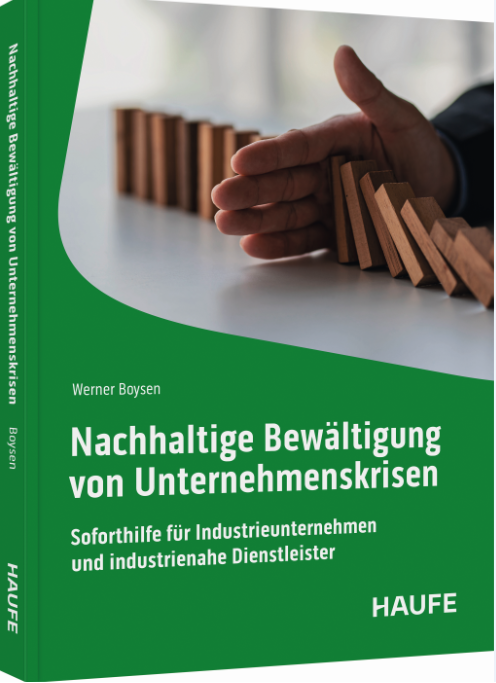New publication: Sustainable corporate reorganisation

The German Federal Statistical Office recently announced the second year of a recession in the German economy, and the third is just around the corner. Many companies are deep in crisis or are already acutely threatened with insolvency. With my new reference book ‘Sustainable management of corporate crises. Immediate help for industrial companies and industry-related …








